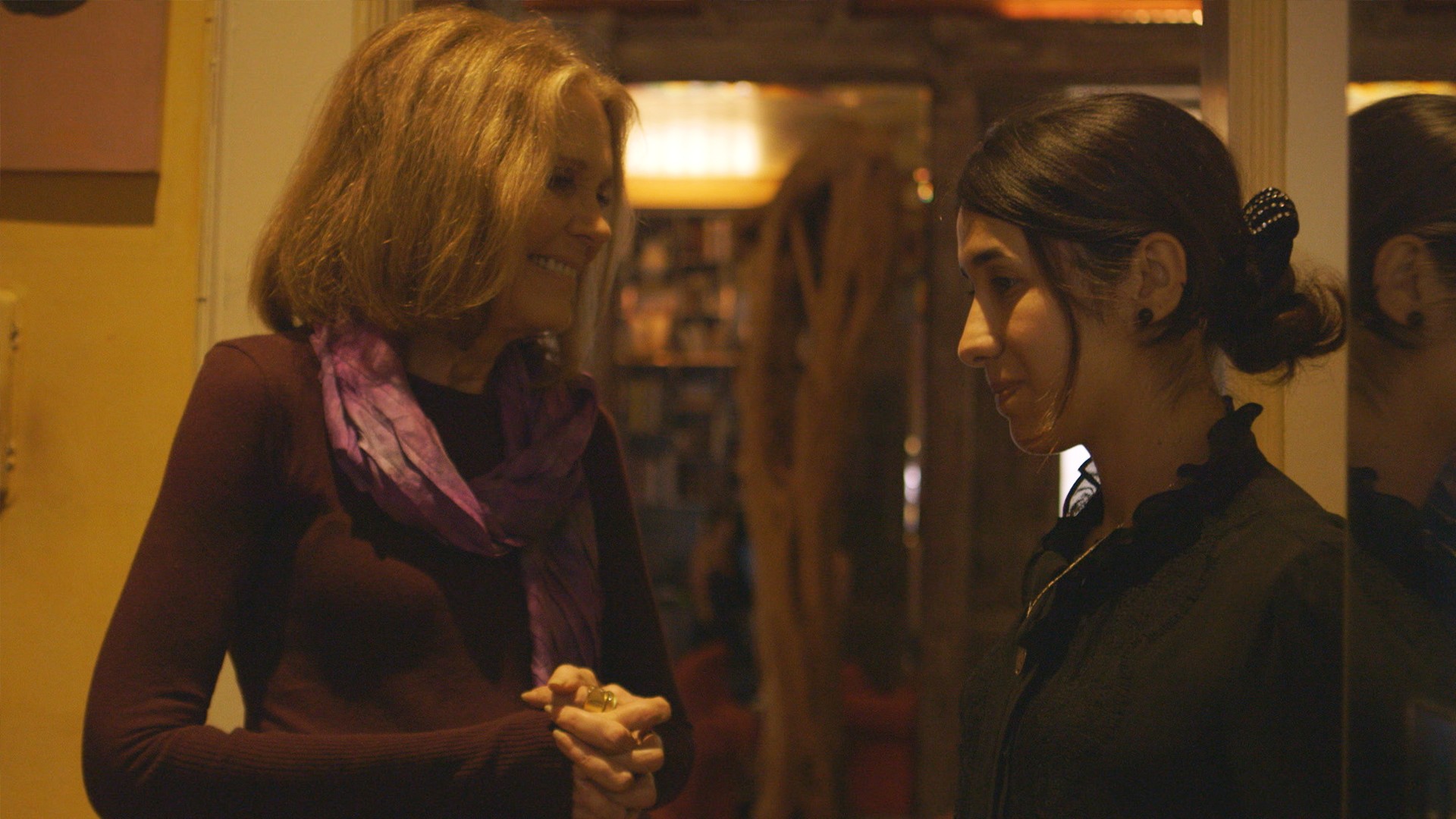"There's a certain level of stigma attached to what I do. It's not the kind of job you want to talk about on the first date—or even the fifth; and I certainly wouldn't mention it at a dinner party."These are the words of Suzy, a prison guard in a sex offenders jail. Suzy is one of the women on the frontline, working with some of the 11,600 convicted sex offenders behind bars in England and Wales.With the number of sex offenders in prisons at a record high—making up almost a fifth of those in jail—we wanted to find out what it's like to work with the people that society fears.
Advertisement
Suzy says that she decided to enter the prison service out of a "feminist curiosity.""I wanted to see whether a woman could work with violent men and keep order and control over them using wit, intelligence, and compassion," she says. "It was a personal experiment, to prove that I could do a 'man's job' in a male-dominated environment and that I could do it well."One word from me can silence a wing of 80 men convicted of violent offences—largely against women—and that gives me job satisfaction."
**Watch: **Broadly Voices: Gloria Steinem & Nadia Murad
Suzy's path into the prison service was almost counter-intuitive. When she was raped by an ex-boyfriend, she made the decision to focus on her career and retrain as a prison officer.Struggling to come to terms with the fact that her partner of three years was a rapist, Suzy explains that working with "monsters" helped her to realize that her ex-boyfriend was just one of many men who were just "normal guys" before they made the decision to rape someone. In fact, sexual assaults by a partner or an ex are astonishingly common, with 56 percent of the victims of serious sexual offenses being assaulted by their partner.
**Watch: **Broadly Voices: Gloria Steinem & Nadia Murad

Suzy's path into the prison service was almost counter-intuitive. When she was raped by an ex-boyfriend, she made the decision to focus on her career and retrain as a prison officer.Struggling to come to terms with the fact that her partner of three years was a rapist, Suzy explains that working with "monsters" helped her to realize that her ex-boyfriend was just one of many men who were just "normal guys" before they made the decision to rape someone. In fact, sexual assaults by a partner or an ex are astonishingly common, with 56 percent of the victims of serious sexual offenses being assaulted by their partner.
"You learn quite quickly that the sex offenders you see on Crimewatch—the weirdos, the loners, the guys hanging out in alleyways—are a very small percentage of men inside," Suzy says. "Most of the men I work with are normal guys with jobs and families."Read more: Amanda Knox: How Prisons Use Cult Tactics to Brainwash Inmates Into Religion
Advertisement
The most dangerous men, Suzy says, are the ones who—despite being convicted—still don't understand consent. "They minimize it and say things like, 'We always used to have sex when we were drunk', or 'She wanted it, really.' They're the offenders who are the hardest to challenge and to change."Like Suzy, Kate—a communications manager for a charity—also works inside a sex offenders prison, where she runs a weekly book club for inmates."Going into a room in which you are aware every man has committed a sexual offence is a bizarre experience at first, particularly as a woman," says Kate, "but what I've learned is that you can't help but see people as human beings after spending a little time with them."
Photo by Ilya via Stocksy
Kate believes that by inspiring inmates to focus on their education, they can learn empathy and critical thinking skills; improve their employment prospects; and learn lots of other life skills that can contribute towards preventing inmates from reoffending and hurting even more people."I'm not blind to the harm that has been caused by the people we help," says Kate, "and I don't excuse the huge pain and lasting damage many of these men have caused—but there are plenty of agencies qualified to address specific [sexual] offences. My job instead is to encourage engagement with education."The charity she works for deals with inmates who have committed all sorts of different offences, but Kate is open in acknowledging that her outlook on offenders isn't a popular one. She maintains that she's just doing her job and promoting a love of reading.
Advertisement
Outside prison walls, work with sex offenders continues in probation and social services. Bianca is a social worker whose clients are predominantly ex-offenders.
"I've always believed that everyone deserves a second chance," she says, "so working with ex-offenders is a natural fit for me—I love what I do."When she was seven, Bianca's father was released from prison after serving a short sentence for his involvement in an organized crime unit. She remembers the social worker that visited her family after her father's release, and says that she knew from that meeting that social work was what she wanted to do.But following her dream career hasn't been easy. Like Suzy, Bianca is a sexual assault survivor—she was attacked by a taxi driver in his car on the way home from a night out."Offenders come in all shapes and sizes, and they've done all kinds of things," says Bianca. "It just so happens that some of them are sex offenders. After what I went through, I didn't think I'd be able to go back to work.It's like having a monster in a cage.
"I never told anyone, so I was dealing with it on my own and I was afraid that work would bring it all back to me. Then one day I just woke up and made a decision that I wasn't going to let some man ruin the career I'd worked hard for."The hardest part, Bianca explained, was learning to process her own trauma in order to be successful at her job. "I had to learn to look at things differently," she says. "The only way I can explain it is; it's like having a monster in a cage—the thing you're most afraid of, trapped in front of you, unable to hurt you.Read more: The Incarcerated LGBTQ People Asserting Their Humanity Through Art
Advertisement
"You kind of look at it in a different way when the threat is removed. You see it for what it is and it becomes a bit less frightening. When that power of fear is removed, you're in control again."Bianca and Suzy's willingness to work with sex offenders, even after their own assaults, mirrors a restorative justice set-up. In the UK and the US, victims of crime and the offender can choose to engage in facilitated communication to help both parties come to terms with the impact of the crime. Restorative justice has been found to provide an 85 percent victim satisfaction rate, and a 14 percent reduction in the frequency of reoffending in the UK. However, Bianca and Suzy are not working directly with those who have assaulted them—but rather those who have committed similar crimes. It's like restorative justice by proxy.
"Mediated, controlled relationships or encounters—i.e. the victim and offender are in a room under carefully contained conditions with a trained facilitator who mediates the process—can have positive, reparative consequences. The victim gets to ask the questions they need, and the offender is confronted with the impact of their actions."Despite both Bianca and Suzy stating that they find working with offenders healing, Georgiou offers a word of warning. "On the one hand," she says, "their work might provide the insight that they need, helping them to get into the mindset of the offender to better understand it.
Katerina Georgiou, a counsellor who works with victims of sexual assault, says:I've had my power taken away from me and I've managed to reclaim it through kindness and compassion.
"Mediated, controlled relationships or encounters—i.e. the victim and offender are in a room under carefully contained conditions with a trained facilitator who mediates the process—can have positive, reparative consequences. The victim gets to ask the questions they need, and the offender is confronted with the impact of their actions."Despite both Bianca and Suzy stating that they find working with offenders healing, Georgiou offers a word of warning. "On the one hand," she says, "their work might provide the insight that they need, helping them to get into the mindset of the offender to better understand it.
Advertisement
"On the other hand, it can also be extremely risky. If there's no containment or facilitation to the process, they risk being re-triggered into a past trauma or the creation of a situation where abusive relationship patterns and dynamics get repeated, whether consciously or unconsciously."Georgiou's concerns aren't without grounding. None of the women we spoke to have received training specific to dealing with sex offenders, although all were equipped with the same attitude towards leaving work at the door and an astonishing level of professionalism. Suzy's training was the most comprehensive, involving a week-long course in control and restraint to deal with violent inmates, whereas Bianca's degree in social work and on-the-job training has provided her with an insight into mental health that isn't currently offered for prison officers.
While their professional relationships with inmates differ, the one thing that Kate, Suzy, and Bianca have in common is their desire to create positive, lasting and meaningful change in men that society perceive as immutable."I do what I do because I truly believe that everyone deserves a second chance," says Bianca. "I've witnessed true remorse, and I've seen offenders do a complete 360 rehabilitation."I've had my power taken away from me and I've managed to reclaim it through kindness and compassion. I'm the one in control now, but I'm using my power for good."
